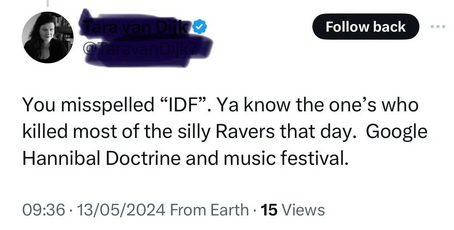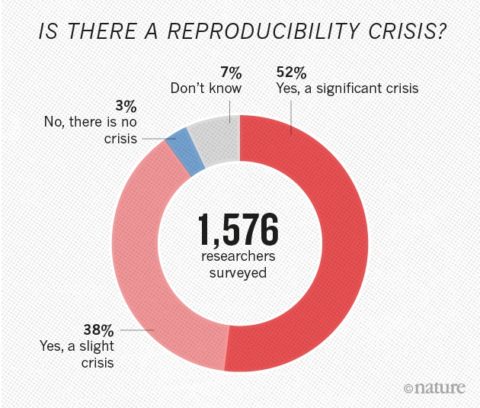Unless you’re very tuned in to all things Euro, you might not have known that the gala Eurovision Song Contest has again come and gone (I only noticed after the fact myself). It wouldn’t be a televised pan-European event if there wasn’t at least a tiddly bit of controversy, so that role appears to have been eagerly filled by the Irish contestant, in whom Brendan O’Neill is unimpressed:

What a thing of beauty that Israel beat Ireland in Saturday’s Eurovision Song Contest. That Israel’s serene songstress, Eden Golan, got more points than Ireland’s warbling, gurning, pseudo-Satanic they / them, Bambie Thug. That an actually decent song trumped the caterwauling of a fake punk who mistakes having tattoos, identifying as “nonbinary” and saying “I’m queer!” for a personality. More importantly, that a singer who was harangued by baying mobs of Hamas fanboys did better than the “singer” who helped to whip up this orgy of cruelty by saying she cried when she heard Israel had made it to the final. Boo-fucking-hoo. I bet you’re crying even more now, Ms Thug.
This is the news – the beautiful news – that Israel came fifth and Ireland sixth in the Eurovision Song Contest. Of course – because they are racist and mentally unstable – Israel haters on social media are saying the Zionist octopus helped to bump up Israel’s points. One pictures Mossad agents taking a break from hunting down the anti-Semites who slaughtered a thousand of their compatriots to post memes on Facebook saying “Screw Bambie, Vote Eden!”. In truth, the reason Israel did so well in the public vote – getting the maximum “douze points” from no fewer than 14 of the 37 nations eligible to vote in Eurovision – is because normal people don’t share the Euro-bourgeoisie’s feverish loathing for the Jewish State. It wasn’t only the emotionally incontinent Israelophobe Bambie Thug who took a beating last night – so did the entire anti-Israel middle class whose cries for a boycott of Eurovision clearly fell on deaf ears.
We shouldn’t get ahead of ourselves, of course, given it’s only Eurovision, and given that some people (me, for example) were highly motivated to vote for Israel in order to wind up the wankers of Europe. But it is undeniably delicious that, despite the pompous pleas of drag queens and other paragons of morality for everyone to switch off Eurovision this year, millions watched. Around 7.6million Brits tuned in. Yes, that’s lower than last year – when we were the hosts – but it’s higher than every year between 2015 and 2021. It will be a source of mirth for me for some time that while the LGBTQ lobby was self-importantly putting away the glitter, locking the drinks cabinet and doing their very best not to check X for Eurovision updates, the general public were watching and enjoying the daftness of it all. Rarely has the moral gulf between us and our preening cultural overlords been so starkly exposed.
Then there were the votes for Israel. It felt like a tiny rebellion against the hysteria of the elites. Brits gave Israel 12 points. So did France, Germany, Belgium, Italy and others. This was people saying “We don’t agree with your bullying of a young woman and your obsessive hatred for her homeland”. Even the good people of Ireland gave Israel 10 points. As someone who knows and loves Ireland, it would not surprise me one iota to discover that people there are as yawningly vexed by Bambie Thug as everyone else in Europe who enjoys the sense of hearing. The land that gifted Eurovision Dana, Johnny Logan and Riverdance now finds itself represented by a self-styled “goth gremlin goblin witch” who does “primordial screaming” (shorter version: she can’t sing). What a mess. I’ve been listening to Logan’s “Hold Me Now” (winner in 1987) to try to liberate my brain from Thug’s narcissistic howling.
Andrew Doyle also commented on the “non binary” emphasis of many participants:
This year the trophy went to Switzerland’s Nemo, a man in a skirt who identifies as “non-binary”. The UK entry, Olly Alexander, calls himself “gay and queer and non-binary” but magnanimously accepts the pronouns “he” and “him”. And then there is the “queer” and “non-binary” Irish entry Bambie Thug, a woman who came sixth in the competition but first in the award for the sorest of losers. Having being beaten by Israel, whose very presence in the competition was a source of outrage for Thug, she had the following to say:
I’m so proud of Nemo winning. I’m so proud that all of us are in the top ten that have been fighting for this shit behind the scenes because it has been so hard and it’s been so horrible for us. And I’m so proud of us. And I just want to say, we are what the Eurovision is. The EBU [European Broadcasting Union] is not what the Eurovision is. Fuck the EBU. I don’t even care anymore. Fuck them. The thing that makes this is the contestants, the community behind it, the love and the power and the support of all of us is what is making change. And the world has spoken. The queers are coming. Non-binaries for the fucking win.
One might argue that all of this is simply an extension of the high-campery of old. Thug certainly looks pantomimic, with her Christmas-cracker devil horns, and the layers of makeup piled on to what used to be a face. But what were once the glittery fripperies of gay culture have been hijacked by the acolytes of gender identity ideology, a movement that has appropriated this whimsical sheen to advance its authoritarian and sinister goals. It is this same movement that has successfully lobbied governments to introduce draconian speech laws, has hounded people out of their jobs for wrongthink, and has normalised bullying and threats of violence in the name of “social justice”.
The very notion of “non-binary” is a reactionary concept dressed up in the guise of progressivism. Most of those who identify as non-binary are embracing, rather than rejecting, sex stereotypes. They claim to feel neither sufficiently masculine nor feminine, which is simply another way of reinforcing what it means to be male or female.
The same ambiguity goes for “queer”. Many gay people see this as a anti-gay slur, associating the term with the practice of “queer-bashing”. But now, many young heterosexuals are identifying themselves into this category as a means to claim the high status that now accompanies victimhood. Dannii Minogue, a lifelong heterosexual, recently “came out” as “queer”. To those who have been the victims of homophobic abuse and violence, it’s galling to see straights embracing the term as a fashion accessory. Minogue may as well have come out as a “faggot” or a “dyke”.

















